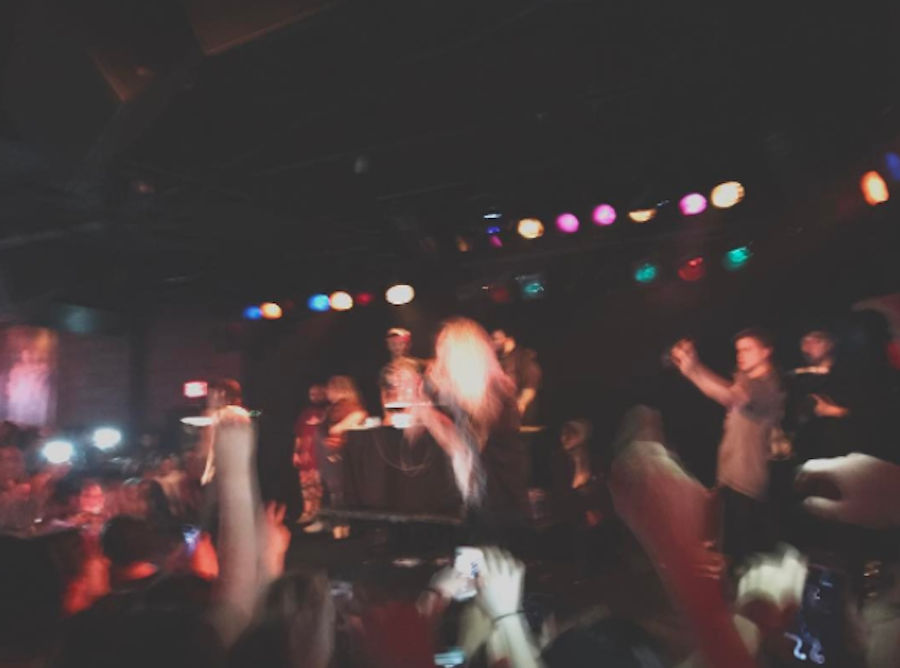Student DJs stand out at BSM
Every one has a hobby they participate in outside of school, and these sophomores have pursued deejaying.
Sophomore Eli Mason deejaying at a popular venue.
May 10, 2017
The first twin turntables were used for continuous play in 1947. Sound systems were developed in Kingston, Jamaica, in the 1950s where large parties would take place in the middle of the streets. Without a doubt, deejaying has been a huge part of the United States’ music culture. A profession since the early 1940s, DJs set the vibe for crowds to make them dance and relax. Now we live in a society that uses DJs to make some of the most popular music in the United States, and we attend a school with two sophomore DJs: Eli Mason and Jalen Anderson.
Mason has been deejaying for almost two years. “I started off deejaying birthday parties. Now, I deejay all-night parties at First Avenue,” Mason said.
Making beats is a big part of Mason’s life, and he dedicates most of his time to it. He sells his personally created beats to upcoming artists and has a producer who helps expose him to the music industry so he can be recognized by different representatives. “My favorite type of music to deejay is hip-hop because it gives the crowd a hype beat to party with,” Mason said.
Anderson started deejaying around a year ago and has fallen in love with the music. Anderson makes his own music for parties, but like Mason, he also spends his time making and mixing songs and beats together, to amp up the crowd. “The best place I’ve deejayed was the Sheridan, for a friend’s graduation party,” Anderson said.
Though DJs use their craft as a method of expression by pouring themselves into their music expressing political issues, new movements, and various perspectives. DJ equipment can actually get very pricey. Mason’s first piece of equipment was a $50 controller, and now he’s using $200-300 controllers. “I’ve spent over three thousand dollars on equipment from when I started, up to now,” Mason said.
Setting up the equipment is also time-consuming. “Setting up can take up to thirty minutes, but sound testing can take over an hour. You want to be able to know for sure that your set will be at its full potential,” Mason said.
Many people think that DJs are people who sit on a flashy stage, hit play, and pretend to do something. That’s where the majority is wrong. Deejaying takes skill––mixing music to the point of producing clean sounds takes time, talent, and patience.






































![Teacher Lore: Mr. Hillman [Podcast]](https://bsmknighterrant.org/wp-content/uploads/2025/03/teacherlorelogo-1200x685.png)












